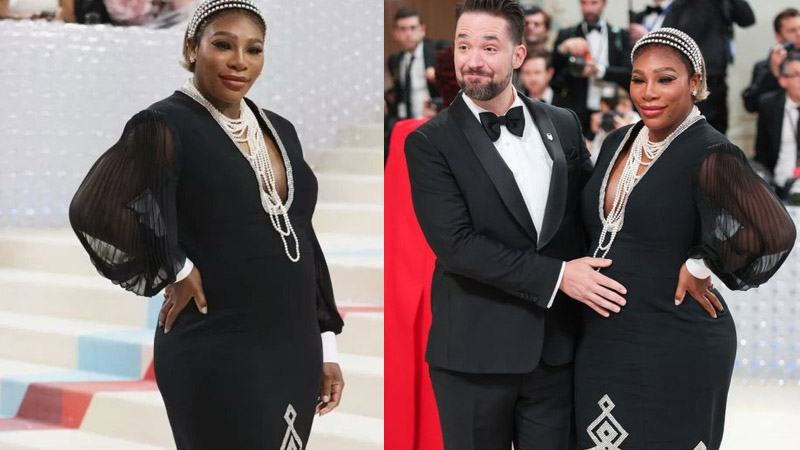We have all experienced it: the relentless questioning from family members about when we plan to have children, the shock and disbelief if we say “not any time soon” at the age of 30, followed by a condescending tap on the wrist as if to tell us that “time is ticking”. This is where the scare tactics begin – the pressure to conform and “settle down” before our biological clocks tick away.
For women who do not want children or are unsure, the whole ordeal is annoying. But for those who do want children but are not in the right place to have them yet, it can be terrifying. With childcare costs on the rise and a limited pool of suitable partners, feeling the pressure that your biological clock is about to go off at any moment can be overwhelming.
Enter Serena Williams, who announced her second pregnancy on the Met Gala red carpet at the age of 41. Williams gave birth to her first child, Olympia, in 2017 at the age of 35 but suffered from a pulmonary embolism after delivery, which left the tennis star bedridden for six weeks. Now, nearly six years later, she has announced that her family with husband Alexis Ohanian is expanding.
It is no surprise, given the aforementioned scare tactics, that many people cannot believe the news. “Serena Williams age” is the most searched term related to the tennis player today, with “What age is Serena Williams?” and “How old is Serena Williams?” following closely behind, according to the Grazia Daily.
While a woman’s fertility tends to decrease after the age of 30, with a more significant decline after the age of 35, there is nothing abnormal about a pregnancy beyond that age. In fact, the rate of women getting pregnant in their 40s has more than doubled since 1990, and nearly one in five births are now to women over the age of 35.
It is true that once a woman is over 40, the NHS offers more tests and different care during pregnancy to mitigate any potential risks to both the mother and baby. However, as more and more women over 40 get pregnant, the age at which a pregnancy is considered “older” is also changing.
Despite this, the shock at Serena Williams’ pregnancy demonstrates just how slowly our perception of what modern pregnancy looks like is changing. It is also a reminder that you do not have to live in fear that you will never have children just because you do not settle down at the age of 20.
This is essential for younger women too, as we have seen many headlines recently about women choosing to have children later or not at all due to factors such as the exorbitant cost of childcare, a lack of job security, and even the unstable housing market creating fear of instability. Faced with these pressures, it is no wonder that women are hoping to wait until they are older and more secure in life to conceive.



